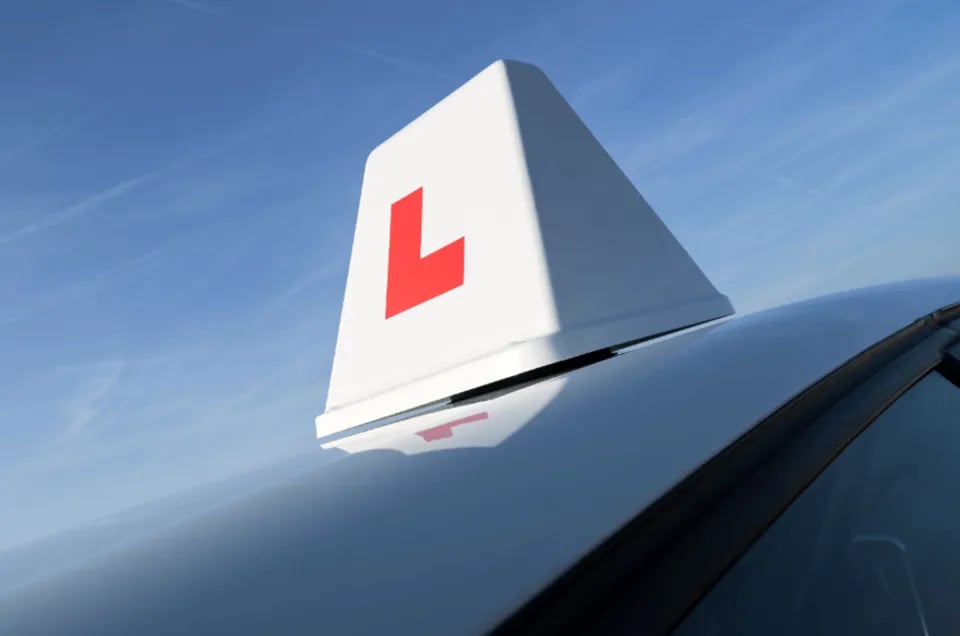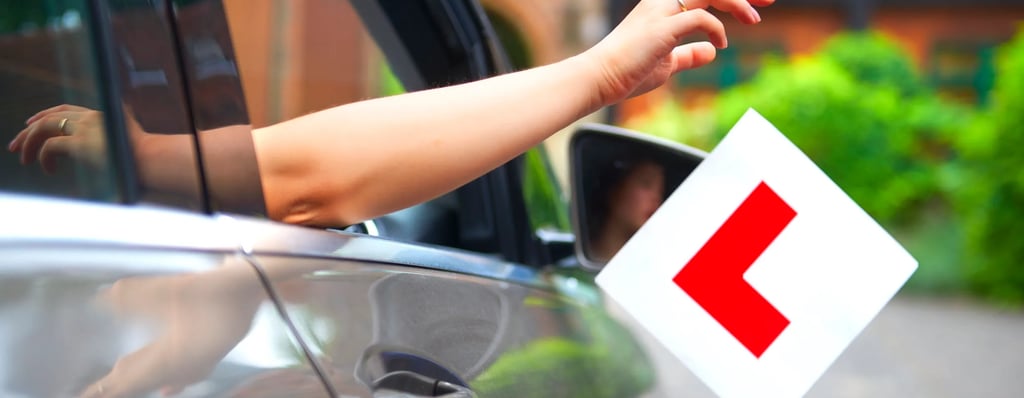Learner Driving News
Driving test backlog to be tackled by changes to booking system.
The Driver and Vehicle Standards Agency hopes to discourage drivers from booking tests before they are ready.
Learner drivers should soon be able to access tests more easily following changes to the booking system which aim to tackle the backlog.
The Driver and Vehicle Standards Agency said it is altering the system to discourage drivers from booking tests before they are ready, which will free up slots for those who are.
Tests were banned over lockdown, with the resulting backlog forcing drivers to wait months before getting the chance to lose their L-plates.
According to the DVSA’s data from February 2023, around 53% of tests are failed, and examiners are having to physically intervene in more than 12% of tests for safety reasons.
The DVSA plans to extend the period that those who fail their test have to wait before booking another test from 10 to 28 days, and extend the notice period during which a cancelled car test will result in a lost fee from three to 10 days.
The measures aim to discourage learner drivers who are not ready to take a test from booking one, and will come into effect in the summer.
Loveday Ryder, chief executive of the DVSA, urged learner drivers to check the agency’s website for advice before booking a test.
She said: “With more than half of people failing their driving test, it is clear more needs to be done to make sure learner drivers only take their test when they are fully prepared.
“These new measures will help make sure test-ready learners find appointments and give those who fail more time for more practice.
“I also urge learners to check out our Ready to Pass? website to make sure they’re ready – and delay their test if they’re not.
“This will help make more tests available and prevent them having to pay to retest.”
DVSA to change driving test rules: What learners need to know before booking
One of the aims of the new rules is to “encourage learner drivers to be better prepared when they take their car driving test”
The DVSA has announced new plans for the driving test booking system.
The DVSA after consulting with more than 20,000 people.
One of the aims of the consultation was to find new ways to “encourage learner drivers to be better prepared when they take their car driving test.
The DVSA said that there is currently a high demand for driving tests, partly due to the pandemic, but also due to learner drivers booking earlier than they should because they have heard wait times are high, and due to the number of people retaking their test after failing the first time.
The new changes will aim to prepare drivers for their tests and reduce the number of driving test appointments that are wasted.
So what exactly has changed and what do learner drivers need to know?
What are the new driving test rules?
One rule that will be introduced is requiring people to wait 28 working days before being able to book a new test after failing one. The wait time will be increased from the current 10 working days.
Some learner drivers disagreed with this proposal, arguing that the reason many people fail their first test is down to nerves and that they’re ready to take the test soon after. However, the proposal is set to go ahead.
Another rule that will be implemented will require learner drivers to move or cancel their test at least 10 working days before to avoid losing their fee, rather than the current three working days.
Furthermore, if legislation passes, learner drivers will have better access to information about driving instructors and their students success rate.
The law will also be changed to allow instructors to do the eyesight check in any level of light and to use more methods of checking people’s eyesight.
People who pass their test will also be issued a digital pass certificate, rather than a paper one.
The Government has not yet confirmed when these changes will come into force.
New statistics show learner driver pass rate fall
The car driving test pass rates was 47.1%, down from 48.1% in the previous quarter.
Between April 2021 and March 2022, car driving tests were failed 786,400 times, new data from the Department for Transport (DfT) reveals.
DVSA research shows that driving examiners had to physically intervene in 168,583 tests during that time to avoid a dangerous incident.
This means driving examiners had to do things such as brake or steer the car in one in five failed tests.
To provide support for learner drivers, the Driver and Vehicle Standards Agency (DVSA) has recently launched the ‘Ready to Pass?’ campaign.
It aims to improve pass rates, which will help to reduce the waiting times for tests.
The campaign gives learner drivers advice on: finding an approved driving instructor; monitoring and checking progress of their driving lessons and private practice; and when to take a mock test.
It also gives advice on how to manage test-day nerves - one in 10 learners who fail their driving test say the main reason they failed was because they were too nervous.
The website also includes a checklist of the things learner drivers should consider when they and their driving instructor agree they’re ready to take the test.
DVSA is asking learner drivers to move their test back if they are not ready, so their appointment can be used by someone else who is ready. They can do this free of charge up to 3 full working days before their test.
Increasing the number of driving tests
DVSA has taken action to increase test availability. The latest statistics show that 425,887 car driving tests were carried out between 1 January and 31 March 2022 (up 14% compared to the same period in 2020).
Since April 2021, DVSA has created about 428,000 more test appointments than are normally available, which has been helped by recruiting new driving examiners - creating an estimated 140,000 extra appointments – and carrying out overtime, including at weekends and on public holidays – creating a further 135,000 extra appointments.
Loveday Ryder, DVSA chief executive, said: “We took swift action to tackle the impact of the pandemic and ensure as many people as possible could take their driving test.
“I’m glad to see the action we took – along with the hard work of driving instructors and our driving examiners – is working, and more test slots are available for learner drivers.
“However, with less than half of learners passing, I’d urge them to use our Ready to Pass? checklist to make sure they’re ready – and delay their test if they’re not. This will help make more tests available and prevent people having to pay to re-test.”
RAC head of roads policy Nicholas Lyes says that, while it’s good to see the number of practical car driving tests now back to pre-pandemic levels, there is still a backlog of learners who are no doubt eager to pass their tests and get on the road unsupervised for the very first time.
“Unfortunately though, an FOI made by the RAC to DVSA reveals the average waiting time in March this year was around 14 weeks – or just over three months – which is too long, especially for those who need a car to get to work,” he added.


Driving licence backlog for motorists with medical conditions up 65%
The number of drivers waiting for a medical driving licence has increased by 132,869 in 12 months, new figures suggest.
A medical driving licence is issued to a driver who suffers from a condition that needs to be declared to the DVLA. This can include diabetes, sleep apnoea, epilepsy or a heart condition.
There were 203,890 applications awaiting a medical driving licence decision on March 25, 2021; however, by 25 March 2022 this had increased to 336,759 applications - an increase of 65%.
Drivers with a notifiable medical condition account for 39% of more than 800,000 people in the UK who are waiting for a new driving licence. The research conducted by Heycar also suggests they are waiting up to six months for their licence in some cases.
The DVLA says it will reach ‘normal’ turnaround times for paper drivers licence applications (up to three weeks including some time for postage) by the end of May, while for medical applications, the target is for 90% of cases to be processed within 90 days by the end of September.
Heycar’s consumer editor Sarah Tooze said: “While some may be able to drive while their application is being processed this isn’t the case for everyone - and many are too scared to take the risk as they are unclear on the DVLA guidelines.
“But an even greater source of anxiety for drivers with medical conditions is simply not knowing what is happening with their application. They accept the Covid-19 pandemic has caused delays but not hearing from the DVLA or being able to speak to anyone for months on end is unacceptable.”
The DVSA says that delays have been caused by the Department of Health and Social Care asking it to pause referring cases in December 2021, and January 2022 to allow the NHS to focus on the vaccine booster programme.
Want to insure a learner driver? Here’s what you need to know.
if your teenage son or daughter has just started driving lessons, or is eagerly awaiting the day they can do so, it probably won’t be long before you find yourself having to navigate the world of “learner driver insurance”.
There are lots of companies offering insurance designed for learners, from household names to smaller specialists – but spool back a decade or so, and this type of cover virtually didn’t exist.
And the cost can vary hugely: a quick Guardian Money price test of a few of the leading providers found that a month’s cover for a 17-year-old living in north-east London could cost anything from £71 to £126.
So what exactly is learner driver insurance, how does it work and what should you buy?
If you are taking lessons with a driving school, insurance will almost certainly be included in the price you are paying.
But if you want some extra hours of supervised practice to help improve your chances of passing your test, using mum or dad’s car (or that of a relative or friend), then you will need to obtain insurance.
According to the RAC, the average learner requires 20 hours of additional practice outside of their driving lessons.
The traditional solution was that a parent would simply add their son or daughter to their own policy. While that may still be viable for some people, adding a provisional licence holder to a main motor insurance policy can be costly – and some insurers don’t allow it.
Learner insurance is designed to sit alongside the existing insurance on the car that the young person will be practising in. Typically, it provides fully comprehensive cover when the learner driver is behind the wheel and also during their driving test if they intend to use the same car.
Crucially, for the main policyholder, this means that if the learner prangs the vehicle, a claim would be made on this policy – leaving the car owner’s main policy untarnished and any no claims bonus protected. There are now thought to be dozens of companies offering this cover. Learner driver insurance can often be bought by the day, the week or the month, and, in some cases, even by the hour.
One of the latest firms to move into this sector is miDrive, which has rolled out a new type of pay-as-you-go insurance called Anytime, where the minimum price for just one hour is £12.70 and the minimum for a month is £90.95.
But one of the issues with this type of cover is that – as Guardian Money discovered when we went shopping for quotes – it doesn’t lend itself to price comparison sites.
If you are looking for a policy, the best bet is to log on to several providers’ sites, fill in some details and get a quote, or ring round a few of the companies.
With some, you can get an indicative quote in a matter of seconds – you simply key in a couple of basic details such as the learner driver’s postcode, age and perhaps the car registration number. Others ask for lots of information before they will give you a quote.
This type of short-term insurance “doesn’t fit into their model” because it’s not an annual policy, says Crispin Moger, chief executive of Marmalade, which claims to be the biggest in the market specialising in young drivers. It started offering learner cover in 2009. He says Marmalade is not on any price comparison sites when it comes to learner insurance, and that he is not aware of any other big providers that are either.
Another major player in this sector is Admiral. Several other household names are involved too, but some of them introduce customers to other firms. For example, the AA introduces people to Collingwood insurance Services, while Aviva’s cover is administered by a temporary insurance specialist called Dayinsure. Other firms in this market include the RAC, Acorn Insurance, InsureLearnerDriver and Covered on Demand.
If your offspring has just started driving lessons, or will shortly, it is worth being aware that they can only book their driving test when they have passed their theory test.
Someone can take the theory test from their 17th birthday onwards. It is worth knowing this because, as a parent, until you have a date for your child’s test, you may feel it is difficult to know how much learner insurance to buy – ie, for how many weeks or months – bearing in mind that you don’t want to get too little and then find it has run out before the test, or waste money on purchasing too much.
However, many of the policies are flexible. For example, Marmalade offers cover for 30, 60 or 90 days, but once that ends, the policyholder can renew for a further seven or 14 days.
Aviva offers cover lasting from one day to five months, while Admiral’s ranges from two hours to 90 days.
Meanwhile, Covered on Demand reckons its policies could work out cheaper than some rivals, because you don’t pay for the days you are not driving.
The crucial thing with this type of insurance is that the learner must be accompanied at all times by a fully licensed driver. Each firm will have its own requirements: with Admiral, for example, this person has to be at least 21, while with Marmalade they have to be over 25.
Also, many companies will impose a curfew – typically, this means the learner isn’t insured between 10pm and 6am. And many will have a maximum value on the vehicle that can be used – often £30,000, but sometimes lower. There is also usually an excess on the policy – £250 is typical.
Meanwhile, it is vital to know that this type of cover ceases the moment the learner passes their test. That means they might need someone to drive them home.
So what happened in our price test? We sought quotes from several companies for a 17-year-old living in Walthamstow, north-east London, who intends to drive her parents’ car, a three-year-old Nissan Note.
For a month’s cover, looking purely at price, Admiral appeared to work out the cheapest, with a quote of £71.32. Two months was £115.94 and three months was £151.60. Marmalade’s site was particularly easy to use, and it quoted £85.88 for 30 days, £151.14 for 60 days and £205.01 for 90 days.
Aviva quoted £126.98 for one month, £211 for two months and £280.70 for three.
With Covered on Demand, we opted for 28 insured “driving days”, which our 17-year-old would then have 90 days to use. The premium for this was £79.52.
However, there were many more companies that we could have tried and a variety of options in terms of how long you can buy cover for, so the best thing is to sit down and give several of the websites a spin, or call up a few of the specialist firms.
Top 10 Reasons Why People Fail Their Driving Tests
No matter how well prepared you feel, there’s always that nagging feeling that something’s going to trip you up on the day of your driving test. To help you prepare for the big day, and to avoid unexpected mistakes, we’ve analysed the last ten years of data from the DVSA to find the top ten reasons why people fail their driving tests. The results might surprise you!Pay extra attention to these common driving test fails for the best chance of passing with flying colours.
1. Junctions (observations)
It’s not always the hardest manoeuvres that cause the most trouble. Every year for the last ten years, the number one reason for failing your driving test was inadequate observation at junctions.It’s probably no coincidence that junctions are also the most common location where accidents occur, which is why good observation at junctions is such an important part of the test.
Tips for the test
Look ahead and spot junctions in good time to position yourself correctly as you approach.Observe other road users around you and make allowances for their speed or direction of travel as you approach the junction.Check mirrors and blind spots for other road users before you emerge from a junction.Only move into the new road when you can see it’s clear, and when you do emerge, don’t dither, hesitate or change your mind.
2. Use of mirrors (change direction)
Consistently in the number two spot for each of the last ten years is drivers failing to use their mirrors correctly when changing direction. For your own safety and that of other road users, you need to be aware of what is happening around you at all times. It’s particularly important if you are altering your vehicle’s position on the road.
Tips for the test
Consult your mirrors in good time, before doing any of the following manoeuvres: turning left or rightchanging lanesovertaking
3. Control (steering)
Lack of steering control has been in the number three spot for the last six years, and in the top six for four years before that. Contrary to popular belief, this isn’t about crossing your hands on the wheel – you won’t fail your driving test for that. The problem relates to steering too early or too late, or letting the steering wheel spin back on its own after turning a corner. These mistakes can cause you to bump kerbs or not position yourself correctly in the road, which can cause danger to other road users or pedestrians.
Tips for the test
Remember your instructor’s training for feeding the wheel through your hands in a controlled way.Driving more slowly around bends helps you to control your steering.
4. Junctions (turning right)
Turning right at a junction is bound to be more challenging than turning left because you have two lanes of traffic to deal with. On busy roads, it’s even more difficult, but examiners are very likely to include one in the test to see how you cope. Under pressure, you might be more hesitant than usual, or go to the other extreme and pull out before it’s really safe. This explains why turning right at junctions is the fourth most common reason to fail your test over the last ten years.
Tips for the test
Use mirrors and signal your intention to turn right at the correct distance from the junction.Position your car correctly at the junction itself, depending on whether the road is wide enough for one or two vehicles at the junction line.Adjust your speed on the approach to the junction; this might depend on whether it’s an open or closed junction, how good your visibility is and other traffic conditions. Be prepared to stop completely if necessary.If edging out slowly at a closed junction with poor visibility, good clutch control is essential.Look again before you pull out. Judge the approaching traffic in both directions, as well as observing cyclists and pedestrians who may be crossing, too. On balance, it’s better to gain a minor fault or two for being a little too hesitant, than to rush and impede other traffic – this will ensure you fail your test.
5. Move off (safely)
It may come as a surprise that “moving off safely” features regularly in the most common reasons for failing a driving test. It’s one of the first things you’ll ever learn: to safely move your car away on a flat surface, from behind a stationery vehicle and, later, on an uphill gradient.
Tips for the test
Use your mirrors correctly.Good observation of other traffic and road users before moving.Signalling correctly.Check blind-spots.
6. Response to traffic signals (traffic lights)
An examiner will mark drivers on several types of traffic signals, but traffic lights is the one that people fall foul of most often. The examiner expects you to stop at traffic lights before the white line when the lights are red or (if it’s safe) on amber. They’ll be watching to see that you proceed safely and in a timely manner when the lights turn green.
Tips for the test
Observation: be prepared for the lights to change as you approach, and judge your approach accordingly. Get in the right lane if there is more than oneDon’t speed up to get through an amber light before it changes to red.Don’t proceed on a green light if it’s not safe or if you’ll be obstructing a yellow box junction.
7. Move off (control)
As well as making sure you move away safely (see No. 5 on our list), the examiner wants to be sure you have the car under control when you move off. If you stall the engine, move away at too high speed or roll back on a hill start, you could be in trouble. Plenty of people fail on this part of the test, but you can improve your skills with lots of driving practice.
Tips for the test
Only take your test when you have mastered co-ordination of the accelerator, clutch, brake and steering.Select the appropriate gear to move away.It’s not the end of the world if you stall the engine, but be sure to follow the correct procedure (as taught by your instructor) if you do.
8. Positioning (normal driving)
Examiners can be rather harsh when it comes to how you position your car in relation to the kerb and the centre of the road, or within marked lanes. It might not surprise you that “road positioning” has been in the top ten reasons for failing your test every year for the last ten years.
Tips for the test
Don’t drive too close to the left-hand kerb.Get in the correct lane early and avoid unnecessary lane changes.Don’t drive too far towards the middle of the road if the width of the lane allows it.Only use the right-hand lane(s) on dual carriageways for overtaking or turning right, unless road marking or road signs indicate that you should.Don’t move unnecessarily in and out between parked cars.
9. Response to signals (road markings)
This is similar to the fail item we’ve listed at No. 6, except this time the examiner is making sure you respond correctly to all sorts of different road markings. This test fail has made the top ten in seven out of the last ten years.
Tips for the test:
Get really well acquainted with all the lines and lane markings on the road through plenty of driving practice and knowing your Highway Code thoroughly:Stop and give ways linesBox junctionsBus and cycle lanesTraffic calming road markingsParking or waiting restriction road marks
10. Reverse park (control)
This little beauty has sparked terror into the hearts of most learner drivers at some point, and appears every year in the top ten reasons for failing the driving test. Perhaps drivers are getting better at it though…in 2009/10 it was the fourth most common reason to fail, but since 2011/12 it’s never been higher than nine or ten on the list.
Tips for the test:
Observe what’s around you before starting, and during the manoeuvre. Clutch control is important – don’t stall!Take it slowly – the examiner is looking for a degree of accuracy rather than speed.Don’t over- or under-steer; aim to be a good, level distance from the kerb Don’t get too close to parked carsGood luck on the big day! When you’re ready to take out your first car insurance, come back to 4 Young Drivers for a competitive quote. We can find you a great deal on policies with or without a black box.


PLATE START
Learner drivers could face ban before they’ve passed if they don’t follow important rules
LEARNER drivers could face a drive ban before they've even passed if they don't follow an important rule.
Many are oblivious that learner drivers can rack up points on their provisional licences.
And it is this that can send the L-platers into a serious spin.
New research shows the number of learner drivers with points already on their provisionals has rocketed to 76,000 offenders.
This is partly thanks to the sheer number of learners charging around on Britain's roads thanks to a monster backlog in driving tests.
The backlog - a hangover from the pandemic - is expected to tailback well into 2024, it has been warned.
In a survey, car insurance provider Veygo found almost a third of Brits are unaware that it’s possible to get penalty points while driving with a provisional licence.
But surprisingly, a whopping 61-percent of those with points have already been stung with between six and 10 points.
Driving without proper insurance saw more than 33,000 stung with points.
While nearly 13,000 were penalised for driving a vehicle without a supervisor present or not displaying their L-plates correctly.
James Armstrong, CEO of Veygo told theECHO "The number of provisional points has jumped this year due to more learner drivers on the road as they await coveted driving test spots amid the pandemic backlog.
"We’d urge people to review the rules as penalties can be more severe for learners and newer drivers, who can have their licences revoked if they commit an offence or exceed 6 penalty points within two years of passing their test."


More than half a million learners waiting for driving test.
More than half a million learner drivers are waiting to take their test amid a huge backlog, figures reveal.
AA Driving School, which obtained data from the Driver and Vehicle Standard Agency (DVSA), said the queue for tests is “too long” and called for a “clear plan” to address the issue.
Driving tests were prohibited during coronavirus lockdowns, leading to a backlog of candidates.
Many people are still struggling to book a test without waiting several months.
DVSA figures for October 22 show 538,832 tests were booked for the following 24 weeks.
AA Driving School interim managing director Robert Cowell said: “Learners were left disappointed when the Government decided not to extend theory test certificates that expired in the lockdowns, as they did with MOTs, and it’s disheartening to see that the practical test backlog reached half a million tests this year
“Driving instructors adapted to make lessons safer when restrictions lifted, but the DVSA has still not caught up enough to meet demand and questions need to be asked about what support they can get to ensure we don’t end up in the same position if restrictions come back.”
The DVSA has announced a series of measures to boost test slots, including holding tests outside normal hours including on weekends and bank holidays, launching a campaign to recruit more examiners and asking recently retired examiners to return.
It has also urged learners to only take their test when they are confident they can pass.
Latest data shows the pass rate rose from 46.4% between 2015 and 2020 to 49.6% between July and September this year.
DVSA chief executive Loveday Ryder said: “We are doing all we can to provide as many tests as possible so we can get our services back to normal.
“I know learners will be keen to take their test now, but it is important that they are properly prepared for their test and don’t take it before they are ready.
“With more than half of candidates failing, and demand currently extremely high for tests, learners should only take their test when they are confident they can pass.
“This will help them to avoid a lengthy wait for a retest and help us by not adding to the driving test waiting list.”
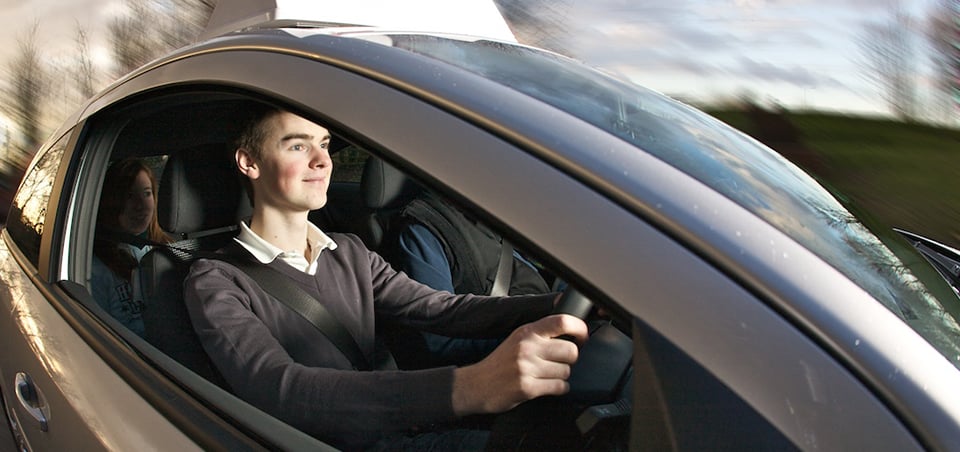

Learner drivers allowed on UK motorways from today as new laws come into effect
Learner drivers will be allowed to drive on UK motorways from today onwards.
New legislation means drivers without a full licence will be allowed to practise their high-speed driving skills.
However, there are a few restrictions they need to bear in mind.
Any learner drivers on the motorway must be having a lesson with an official instructor, and the car must have dual controls.
Whether or not they are allowed on will also be at the discretion of their instructor, who must deem them ready to deal with the challenge of high-speed driving.
The change in law is hoped to give new drivers more confidence before their first foray into motorway driving, after 27 per cent of drivers said they were scared when they first went on to a motorway, according to a study from AA, who welcomed the change.
Edmund King, director of the AA Charitable Trust, said: "Young drivers are drastically over-represented in crashes. This change, which will help broaden the opportunities they have while learning, is very positive.
"It is somewhat perverse that five minutes after passing the driving test a new driver could venture alone on to a motorway without having had any motorway tuition."
Road safety minister Jesse Norman reassured drivers that Britain's roads are "among the safest in the world", but pointed out road collisions were still the second biggest killer of young people.
"Allowing learner drivers to have motorway lessons with a qualified road safety expert will help more young drivers to gain the skills and experience they need to drive safely on motorways," she added.


DVSA warning ahead of driving examiners and vehicle testers strike
Driving tests and motorcycle tests and the DVSA’s customer service centre could be impacted by industrial action planned for February 1.
The members of the Public and Commercial Services (PCS) union are striking over pay, pensions, jobs and redundancy terms.
The Government says that the industrial action will not affect theory tests or MOTs for cars, vans and motorcycles.
Furthermore, tests will not be affected by the strike action if they are being taken with a private test provider. This includes some Driver Certificate of Professional Competence (CPC) part 3a (off-road exercise) tests and Driver CPC part 4 (practical demonstration) tests.
DVSA also does not expect the strike action to affect MOTs for heavy goods vehicles (HGVs), buses and trailers, but will not know for certain until the strike action takes place.
Not all specialist vehicle standards assessors are PCS union members, and even if they are, they might choose not to go on strike.
The customer service centre will close at 4pm on Wednesday, February 1.
Conquering the Road: Your Guide to Passing Your Driving Test First Time
Earning your driver's license is a thrilling milestone, but the driving test can feel like a daunting hurdle. Fear not, aspiring driver! With the right preparation and approach, you can confidently navigate your way to a first-time pass.
This guide equips you with the knowledge and strategies to ace your driving test:
Master the Fundamentals:
Solid foundation: Ensure you have a strong grasp of the Highway Code. This isn't just about passing the theory test; it's about becoming a safe and responsible driver.
Car control: Practice maneuvers like hill starts, parallel parking, and reversing around a corner until they become second nature.
Observation skills: Develop a meticulous observation routine. Glance in your mirrors frequently, check blind spots before maneuvers, and signal clearly.
Practice Makes Perfect:
Quality over quantity: Prioritize focused practice sessions with a qualified driving instructor. They'll identify your weaknesses and tailor lessons to address them.
Variety is key: Don't just stick to familiar routes. Get experience driving in different weather conditions, on various road types (highways, country lanes, city centers), and at different times of day.
Mock tests: Simulate the real driving test by taking mock tests with your instructor. This helps manage nerves,identify areas for improvement, and familiarize you with the test format.
Conquer Your Nerves:
Relaxation techniques: Practice deep breathing exercises to stay calm under pressure. Remember, the examiner is there to assess your driving skills, not your anxiety levels.
Positive mindset: Believe in yourself and your abilities! Go into the test with a positive attitude and focus on demonstrating your competence.
Bonus Tips:
Get a good night's sleep: Being well-rested improves concentration and reaction time.
Dress comfortably and appropriately: Avoid restrictive clothing that might hinder your driving.
Know your test route (but don't over-rely on it): Familiarity with the route can be helpful, but be prepared to adapt if the examiner takes a different route or throws in unexpected situations.
Ask questions: Don't hesitate to clarify any doubts you have with your instructor.
Remember: Patience, dedication, and the right guidance are key to driving test success. By following these tips and putting in the practice, you'll be well on your way to achieving your driving goals!
Taking it a step further:
Looking to conquer the roads of Banstead? At Banstead School of Motoring, our DVSA-approved instructors will equip you with the skills and confidence to excel in your driving test. We offer personalized lessons tailored to your needs,ensuring you're comfortable navigating everything from Burgh Heath roundabout to tight parking on the high street.
Contact us today to discuss your learning journey and get on the road to driving success in Banstead!
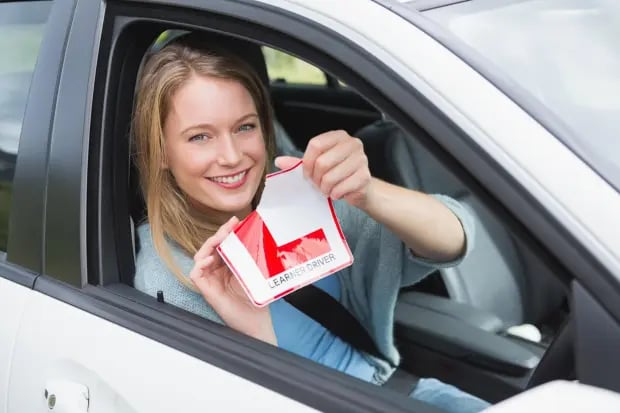

A learner driver who failed the theory test 59 times before passing has been praised for their "amazing" commitment.
The person, who has not been named, spent £1,380 and around 60 hours on the process at a test centre in Redditch.
That is more than anyone else in Britain, but only just: another learner in Hull failed 57 tests, another in Guildford 55, and a driver in Tunbridge Wells fell short 53 times.
The AA said nerves always play a part but that "revision is key to success".
The figures from the Driver and Vehicle Standards Agency (DVSA) relate to learner drivers who passed during the first half of 2023.
Each theory attempt costs £23 and takes around an hour.
Camilla Benitz, managing director of AA Driving School - which has launched a revision app helping learners prepare for the test, said: "There's no doubt it's a tough test and these learners' commitment to passing is amazing.
"It's quite easy to underestimate the theory test," she said, urging the importance of revision.
Learners must pass the theory before they can book a practical driving test in the UK.
The theory test consists of 50 multiple-choice questions testing candidates' knowledge of the Highway Code and guidance on driving skills, for which at least 43 correct answers are required.
This is followed by a hazard perception test, which involves 14 video clips of driving situations.
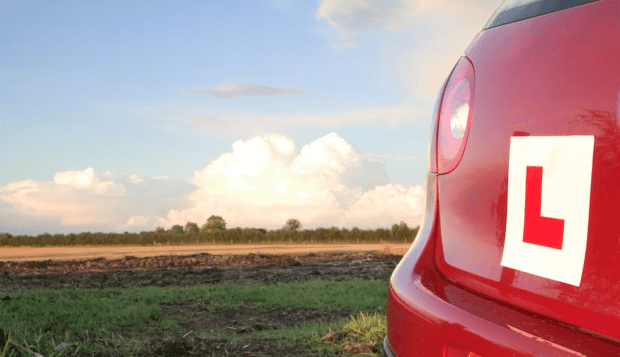

Calls to do more to support young drivers as learner costs hit £2.5K
Learners are now paying 215% more for driving lessons than they did thirty years ago, with more young people being excluded from getting behind the wheel due to financial pressures.*
Now car insurance experts are calling for more regulation for the cost of learning to drive.
This comes after many simply cannot afford the expense as young people are estimated to pay over £2500 to get their licence.
Credit – Shutterstock
Quotezone has researched the average amount of money a learner today will end up paying from start to finish.
Before even getting behind the wheel, learners in the UK must apply for a provisional driving licence, costing them £34 to apply online or £43 by post.
Next, the biggest expense, is finding a driving instructor suitable and getting enough practice in to take the test.
The Government’s ‘Ready to Pass’ campaign claims that the average learner will take 45 hours of lessons with their instructor plus 22 hours of private practice.**
Taking into account that the average 1 hour lesson costs £30, learners are expected to fork out £1,350 to pay instructors.***
Paying to actually take the driving test is another expense learners cannot avoid – pupils must pass both the theory test (£23) and the practical test (£62 for weekday tests rising to £75 on the weekend).****
Additional fees at the test-taking stage include paid-for apps to practise theory test questions, and many driving instructors will also require payment for learners to use the car when taking their test.
Overall, learners are now paying £2707 to learn to drive, not including the cost of more driving lessons and more tests if they are unsuccessful after the first try.
Every year around 1.6 million nervous Brits buckle up to sit their practical driving test, and the pass rate as a whole falls just shy of 50% – dropping to 46% on average for female drivers.
Comparatively, reports show that learners in the 1980s and 90s paid an average of just £10 an hour – meaning lessons alone are costing pupils today £900 more.
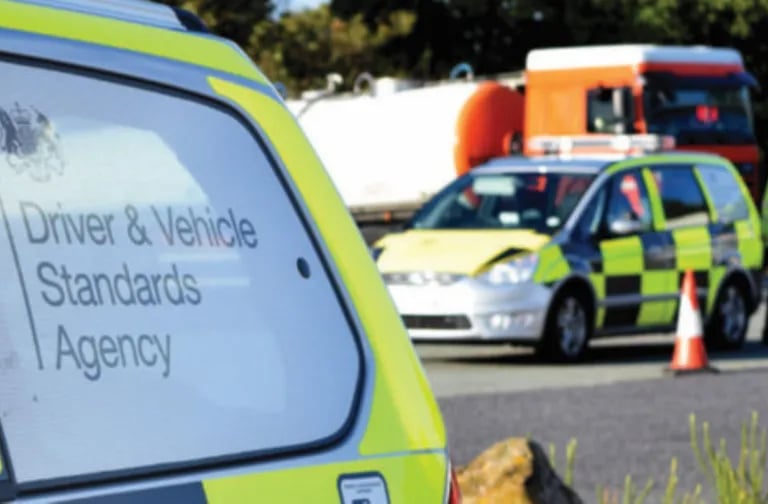

The Government has launched an independent review to help shape its future.Part of a wider Government programme looking into the effectiveness of public bodies, the agency will be assessed on efficiency, efficacy, accountability and governance.With the rise of new vehicle technology and automated vehicles, the Department for Transport (DfT) says that the review will also ensure DVSA continues to evolve as new technology is rolled out on UK roads. Roads minister, Guy Opperman, said: “The DVSA plays a crucial role in making sure road users get around safely and with confidence, helping learners pass their driving tests and giving drivers peace of mind by ensuring MOTs are carried out to exceptional standards.
“This review will help us understand how the DVSA can continue to improve, evolving alongside vehicle technology and keeping Britain moving safely and sustainably.”
The review will also assess how DVSA works with its wide range of stakeholders within and outside of Government to help keep Britain’s roads safe.
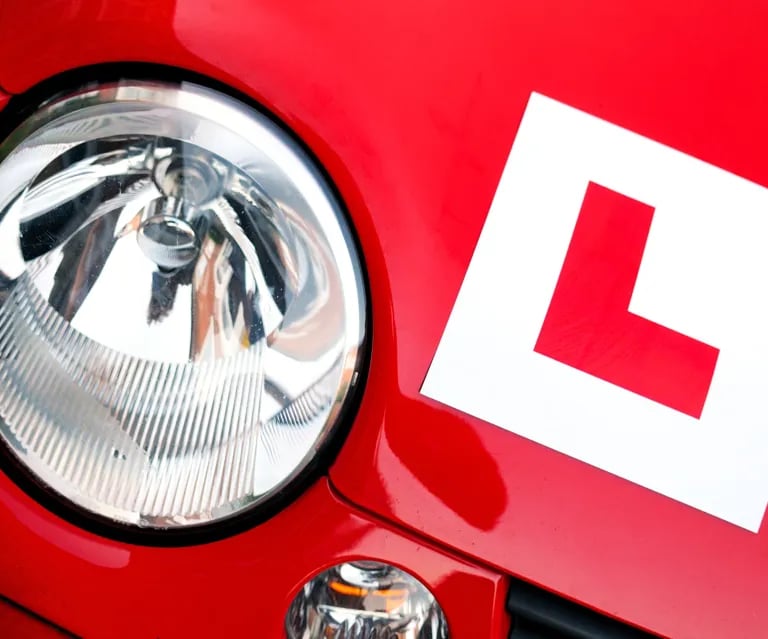

The Public and Commercial Services (PCS) union has suspended the driver examiner strike taking place this month (June) after receiving a new pay offer from the Department for Transport (DfT).
The industrial action was set to affect driving test centres in different parts of Great Britain at different times.
Union members would have been striking in London, south-east England, south-west England and Wales today (Thursday, June 15), Friday (June 16) and Monday, June 19.
Further industrial action was planned in Scotland, north-east England, north-west England, Yorkshire and the Humber, the East Midlands, West Midlands, East of England, and parts of London on Thursday, June 22, and Friday, June 23.
However, the union has now suspended its action at the Driver and Vehicle Standards Agency (DVSA) while it negotiates with the DfT over a new cost of living payment. The DfT has offered driving examiners a £1,500 lump sum.
The PCS said it would now begin negotiations with the DfT over the timing of the payment and how such payments will be made to part-time workers.
But the union warned that the suspension does not mean an end to action and strikes could escalate if the DfT doesn’t meet the union’s conditions on how and when the lump sum payment is made.
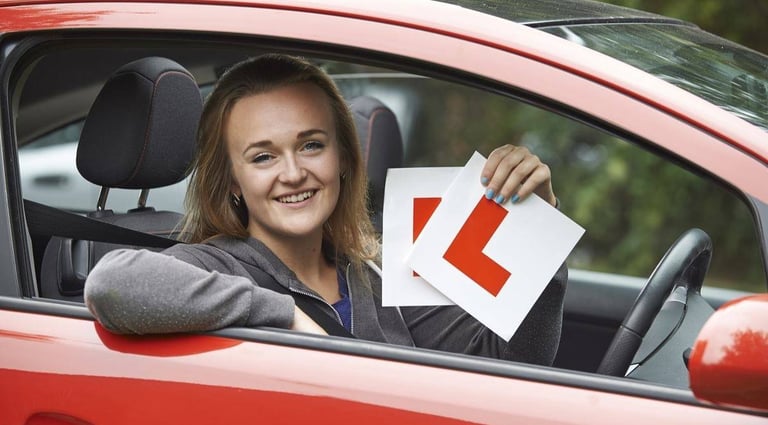

Banstead School of Motoring: Your Ultimate Destination for Comprehensive Driving Instruction
Welcome to Banstead School of Motoring, where we believe that learning to drive is more than just a milestone – it's a journey towards freedom, independence, and new opportunities on the road. Nestled in the heart of Banstead, our driving school is committed to providing top-quality instruction that equips our students with the skills, knowledge, and confidence they need to become safe and responsible drivers for life. With a team of highly trained and experienced driving instructors, personalized lesson plans, and a dedication to excellence, we are your ultimate destination for comprehensive driving instruction in the Banstead area.
About Us:
Banstead School of Motoring isn't just another driving school – we're a community of passionate instructors and dedicated students who share a common goal: to make our roads safer for everyone. With years of experience in the industry, our team brings a wealth of knowledge and expertise to every lesson, ensuring that our students receive the highest quality instruction possible.
Our Mission:
Our mission is simple: to empower our students with the skills and confidence they need to navigate the roads safely and responsibly. We believe that driving is a privilege that comes with great responsibility, and we are committed to instilling in our students a deep respect for the rules of the road and a dedication to practicing safe driving habits at all times.
Why Choose Us?
1. Professionalism: At Banstead School of Motoring, professionalism is at the core of everything we do. From our instructors to our lesson plans to our customer service, we uphold the highest standards of professionalism and integrity in every aspect of our business.
2. Expert Instruction: Our team of driving instructors is comprised of highly trained professionals with years of experience in the industry. They are not only experts in the mechanics of driving but also skilled educators who know how to effectively communicate complex concepts in a way that is easy to understand.
3. Personalized Approach: We understand that every student is unique, which is why we take a personalized approach to instruction. Whether you're a nervous beginner or an experienced driver looking to sharpen your skills, we tailor our lesson plans to meet your individual needs, goals, and learning style.
5. Flexible Scheduling: Life can be hectic, which is why we offer flexible scheduling options to accommodate your busy lifestyle. Whether you prefer lessons during the day or on weekends, we can find a time that works for you.
6. Modern Fleet of Vehicles: Safety is our top priority, which is why we maintain a modern fleet of vehicles equipped with the latest safety features and technology. Our vehicles undergo regular maintenance and inspections to ensure they meet the highest standards of safety and reliability.
7. Competitive Pricing: Quality driving instruction shouldn't cost a fortune. That's why we offer competitive pricing and package deals to make learning to drive affordable for everyone.
Our Services:
1. Beginner Driving Lessons: Our beginner driving lessons are perfect for new drivers who are just starting their journey behind the wheel. We'll cover everything you need to know to build a solid foundation of driving skills and confidence.
2. Refresher Courses: If you're feeling a bit rusty or haven't driven in a while, our refresher courses are designed to help experienced drivers brush up on their skills and regain their confidence behind the wheel.
3. Intensive Driving Courses: Short on time? Our intensive driving courses are perfect for students who want to fast-track their learning and pass their driving test quickly.
4. Pass Plus: Once you've passed your driving test, our Pass Plus course offers additional training to help you become an even safer and more confident driver. Topics covered include driving in adverse weather conditions, night driving, and more.
Testimonials:
Don't just take our word for it – hear what our satisfied students have to say about their experience with Banstead School of Motoring:
"I can't thank Banstead School of Motoring enough for helping me pass my driving test on the first attempt! My instructor was patient, knowledgeable, and supportive throughout the entire process. I highly recommend them to anyone looking for top-notch driving instruction." - Sarah M.
"I was a nervous wreck when I first started taking lessons, but my instructor at Banstead School of Motoring put me at ease right away. Their personalized approach to instruction gave me the confidence I needed to pass my test with flying colors. Thank you!" - John P.
Contact Us:
Ready to start your driving journey with Banstead School of Motoring? Get in touch with us today to schedule your first lesson. Whether you're a complete beginner or just need a bit of extra practice, we're here to help you become the best driver you can be.
Don't wait – take the first step towards confident and safe driving today with Banstead School of Motoring!
Disclaimer:
*Terms and conditions apply. Please contact us for more information.
Discover Driving Excellence
Embark on an exhilarating journey towards driving mastery with Banstead School of Motoring! Our array of services isn't just about teaching you to drive; it's about igniting your passion for the open road and empowering you with the skills to navigate it confidently.
Tailored Services
Whether you're a newcomer eager to kick-start your driving odyssey, an experienced driver seeking a skills refresher, or someone craving the adrenaline rush of highway driving, we've got you covered! Our services are meticulously crafted to cater to the diverse needs and aspirations of every driver.
New Adventures Await
Step into the driver's seat and experience the thrill of learning with our driving lessons for new students. Our expert instructors will guide you through the basics, instilling in you the confidence to conquer the road ahead.
Rediscover Your Drive
For experienced drivers seeking to sharpen their skills, our refresher lessons offer the perfect opportunity to fine-tune your techniques and enhance your driving prowess. Whether it's mastering parallel parking or perfecting your lane-changing maneuvers, we'll help you rediscover the joy of driving with precision and finesse.
Conquer the Highways
Ready to take on the fast lane? Our motorway lessons are designed to equip you with the confidence and proficiency needed to navigate highways with ease. From merging seamlessly into traffic to handling high-speed scenarios, we'll prepare you for the exhilarating adventure that awaits beyond city limits.
Your Driving Destiny Awaits
At Banstead School of Motoring, we believe that driving is more than just a skill—it's a passport to freedom and exploration. With our tailored services and expert guidance, you'll embark on a journey of discovery, unlocking new horizons and conquering the road with unwavering confidence.
Ready to Start Your Journey?
Whether you're a novice driver eager to embark on your first driving adventure or an experienced driver seeking to enhance your skills, Banstead School of Motoring is your gateway to driving excellence. Contact us today to begin your exhilarating journey towards driving mastery!


